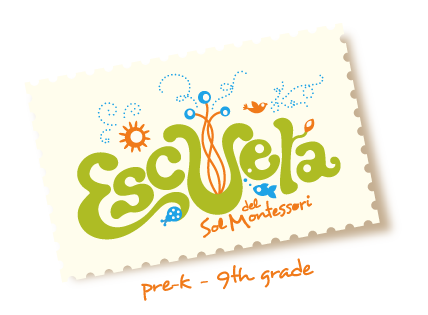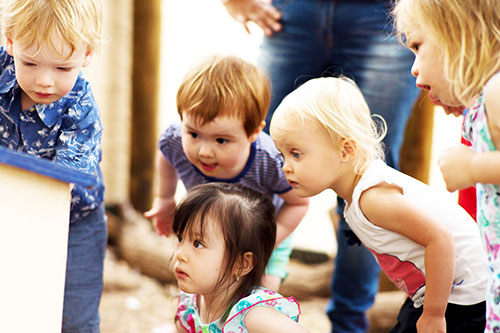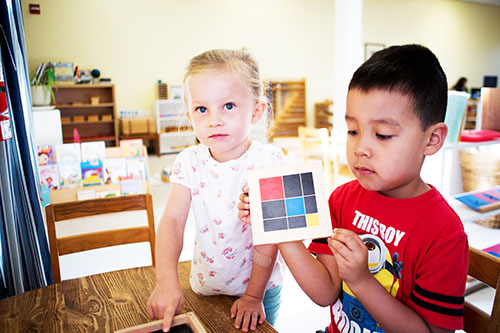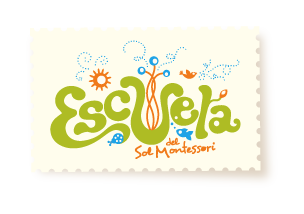By Sarah Louderbough, Elementary Level Director
We hope you are enjoying the final days of summer fun and looking ahead to an engaging school year! We have an amazing group of students entering Jr. Elementary this school year – one of many exciting milestones. Elementary-aged children are known for insatiable curiosity, physical and intellectual stamina, BIG (often messy) projects, and a unique social drive. Their growing sphere of awareness will lead them to explore, experiment, and learn about communication, conflict, collaboration, and a range of moral questions and issues of social responsibility. Questions such as, “What does it mean to be part of a classroom community?,” and “What is it to be a work partner and friend?” are significant and invaluable.
Because group work and community dynamics are such important components of Elementary classrooms, various factors are considered when we place children into each of our Jr. El communities. Looking at the balance of ages and genders, the placement of siblings, and continued relationships between parents and teachers is just the beginning. We also carefully consider group dynamics and the potential for solid work partners. You have shared valuable insights about your children; the Primary teachers also have a unique perspective and important information to contribute. We have carefully considered the many pieces of this dynamic puzzle to create strong classroom groups.
Your child will be welcomed to school and well cared for by their entire community, but first year students will have a special mentor buddy for the first week or two of school. Returning students are enthusiastic about the opportunity to host a new classmate, practicing leadership and taking pride in preparing to be a “buddy” and role model. They remember being new to the classroom and often talk about their welcome and orientation. Now it is their turn to contribute by welcoming new friends and helping everyone learn the ropes.
Below are some nuggets we compiled to help you support your children in their upcoming transition into Elementary.
Getting Ready for Elementary
As children prepare to join the Elementary, we aim to provide a range of opportunities to practice skills that will help them to be successful in Junior El classrooms. This year, as children prepare to return to school after online or home schooling, for example, we are encouraging families to incorporate practice and support the development of these skills to support the upcoming transition. It is likely that you are already doing numerous things to help your child develop skills that will serve them in their upcoming journey. We hope the following examples are helpful.
When your child helps to sort and fold laundry, or unload the dishwasher:
- they are assuming responsibility and contributing to the well-being of the family
- they may need to listen to and follow directions
- there is opportunity to see a task through to completion
- they may need to compromise with you or a sibling about their role
- they may work through difficulty if the pile of towels falls and needs to be refolded
- they are practicing and refining fine-motor skills
- there is opportunity to participate in the give and take of conversation
When your child helps to set the table, prepare or serve a meal:
- there can be a great sense of pride connected to those contributions
- there is opportunity to take care and make the table space tidy and appealing
- they can gain experience tracking and managing time
- you can talk through the steps needed to reach a goal
- there can be conversation about nutrition and meal planning
- there may be opportunity to practice making good choices
- they may need to watch you do something without touching or interrupting
When you play games together,
- there may be opportunities to practice taking turns, and waiting for one’s turn
- there will likely be rules or agreements to be followed, and possibly discussed
- your child may practice expressing their needs verbally and listening to others
- there may be opportunity to work through disappointment or frustration
- there may be opportunity to win graciously or cheer on a friend who is struggling
- there may be opportunity to try something new or to struggle with a new skill or concept
- they may need to make a different choice if their first is not available
When your child takes care of their belongings,
- they are contributing to the well-being of the household
- they are practicing personal responsibility
- they may need to attend to a variety of tasks that will take time and steps to complete
- if the space is shared with a sibling, they may need to compromise or disagree respectfully
- during deep cleaning, they may transition to lunch and then need to return to their task
- they may need to decide what to do first and next and so on
When you go on walks together,
- children can practice navigating the neighborhood and learning directions
- you can take turns sharing observations and asking questions
- observations and questions may evolve into hypotheses and experiments
- children can practice being aware of their body in space, and sharing space with others
- you may get to the park to find that the swings are unavailable and a shift is needed
When you read aloud to your child, or listen to audio books,
- reading comprehension develops as the mind creates images
- children hear words and phrases in context, building vocabulary and understanding
- children hear grammar, syntax, and punctuation in use
- children access content that is more sophisticated than what they are able to read independently
- opportunities may arise to discuss social, cultural, moral or other valuable complexities
- a love of literature is fostered and nurtured; empathy grows
Two other practical pieces that are hugely valuable are real-life, in context experiences with time and money. Take some cash to the store or to a restaurant for cash tips and get an analog clock in the house to reference. Simply using these pieces, even casually, will offer valuable exposure.
What are some other ways children practice the following skills at home and in their world? We would love to hear your ideas and be able to share these with others!






